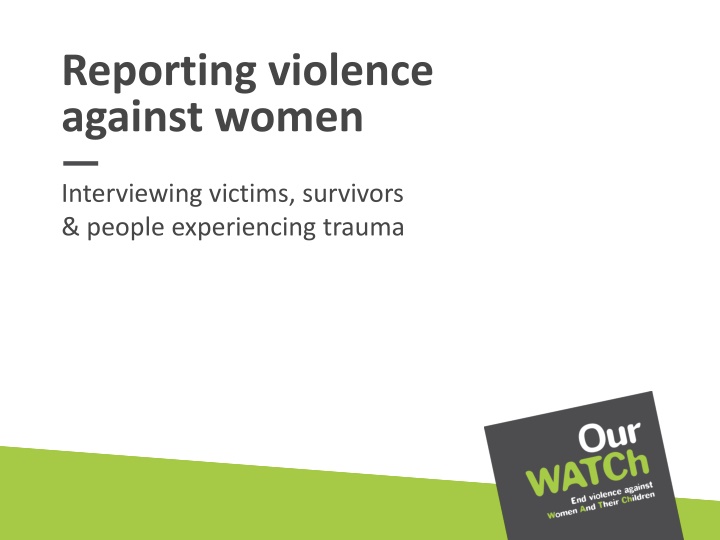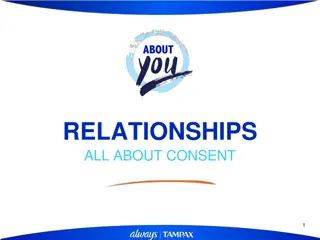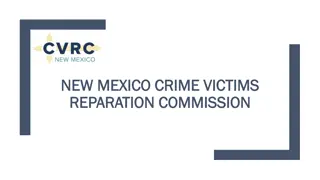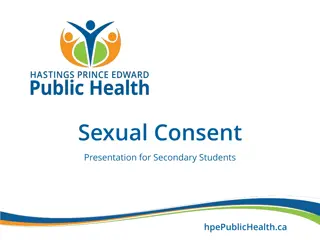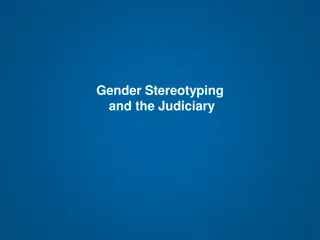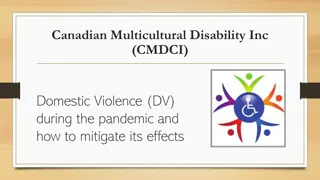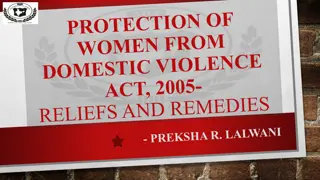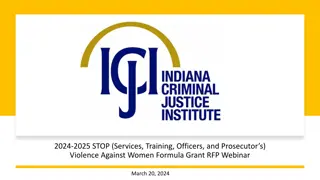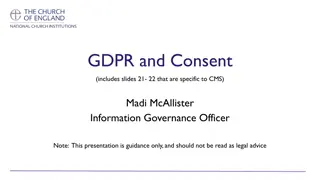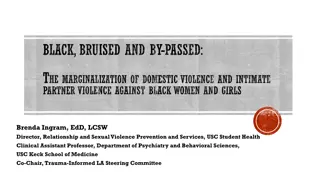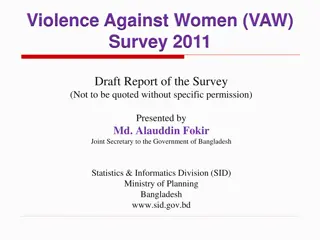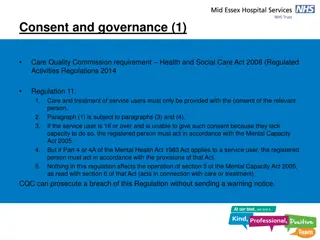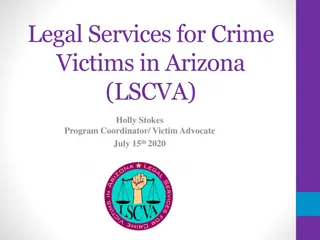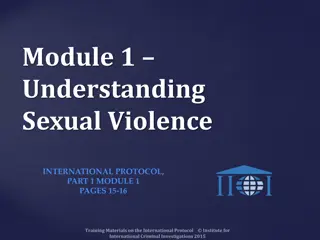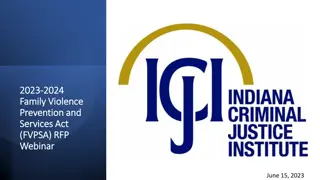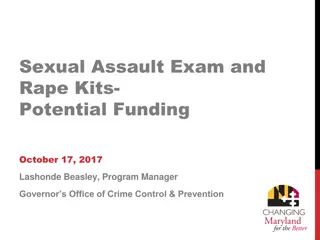Ethical Considerations in Reporting Violence Against Women: Interviewing Victims and Ensuring Consent
It is crucial for journalists reporting on violence against women to interview victims and survivors ethically and respectfully, ensuring informed consent is obtained before sharing their stories. This involves being sensitive to trauma, prioritizing the well-being of the interviewees, and assessing their ability to provide consent. Safety considerations, including anonymity for subjects in small communities, are also paramount in such reporting.
Download Presentation

Please find below an Image/Link to download the presentation.
The content on the website is provided AS IS for your information and personal use only. It may not be sold, licensed, or shared on other websites without obtaining consent from the author.If you encounter any issues during the download, it is possible that the publisher has removed the file from their server.
You are allowed to download the files provided on this website for personal or commercial use, subject to the condition that they are used lawfully. All files are the property of their respective owners.
The content on the website is provided AS IS for your information and personal use only. It may not be sold, licensed, or shared on other websites without obtaining consent from the author.
E N D
Presentation Transcript
Reporting violence against women Interviewing victims, survivors & people experiencing trauma
Interviewing victims and survivors It's important to do it ethically and respectfully and with consent Traumatic experiences rob individuals of their sense of self. By telling their story, journalists can help to restore it Failing to the tell the story because of our own timidity or discomfort can be ethically dubious Be prepared: allow extra time for a survivor to get comfortable, demonstrate that they, and not your deadline, are your priority
3 Informed consent A cornerstone of professional ethics Must be obtained prior to interview or image being taken Generally speaking, children alone cannot give consent ask the responsible adult Particularly when dealing with victims and survivors, accept that no means no But don t be frightened to ask. Telling stories can be powerful, and is your job!
4 Four abilities model of consent Journalists can use the four abilities model to assess whether a person is capable of providing informed consent o The ability to express a choice; o to understand the meaning of what is proposed; o to appreciate the implications and consequences; and o to arrive at a reasoned decision.
5 Consent after trauma Traumatic stress is an expected response to experiencing violence How can the journalist know about the subject s state of mind? What can reasonably be expected of the journalist? o Consider consulting local experts or support organisations o Consider seeking a female interviewer or arranging for a female to be present o Take extra care to explain your purpose in an honest and straightforward fashion o Consider checking back with the subject before publication or broadcast
6 Safety Your duty to the public interest and your sources means considering the safety of your interview subject at all times. o This has implications for: Where you conduct the interview How you communicate with the subject Whether you identify the subject Remember that people in small communities may require careful anonymisation to protect their identities
Survivor power Place as much control of the encounter as possible in the hands of the survivor by: o A quiet approach and honest introduction o Conveying that the survivor s welfare was paramount o Treating the survivor as an equal o Using open questions, allowing the survivor to decide what to talk about and how much to tell o Allowing the survivor to tell the story in her own way without putting words in her mouth 7
Different kinds of questions Open questions o What would you like to tell me about your experience? Closed questions o Did he hit you? No question o I can t imagine what it is like to have been through this. o I admire your strength in choosing to tell your story. o I don t understand. o Silence/acknowledgement combined with good listening. 8
Best practice interviewing Ask open questions Follow up with questions of clarification and development Do not push survivors to answer questions they do not want to answer Do not seek sensationalised details, such as asking the survivor to recount explicit details Avoid: o saying I know how you feel . You don t. o asking How do you feel? How do you think? o putting words in their mouth: It must have been... o asking questions or making comments that imply blame o using inappropriate language to describe abuse 9
Best practice interviewing Please let me know if you would like to stop or take a break. Did he hit you? Why didn t you leave? What would you like to tell me about your experience? I know just how you feel. I can t imagine what it is like to have been through this. Putting words in her mouth Asking questions or making comments that imply blame I admire your strength in choosing to tell your story. Using inappropriate language to describe abuse (e.g. rape is not sex ; abuse is not a volatile relationship ) I don t understand. Can you help me understand? Silence and acknowledgement combined with good listening. 10
Conclusions Never pressure a victim or survivor to talk, but don t shy away merely because of your own discomfort. Consent is essential, but requirements can vary with circumstances. Traumatised people can and do make good decisions about consent. The journalist needs to act in ways that put the safety of the interview subject first. Recognise and augment survivor autonomy : vulnerable people s right to tell their stories. 11
